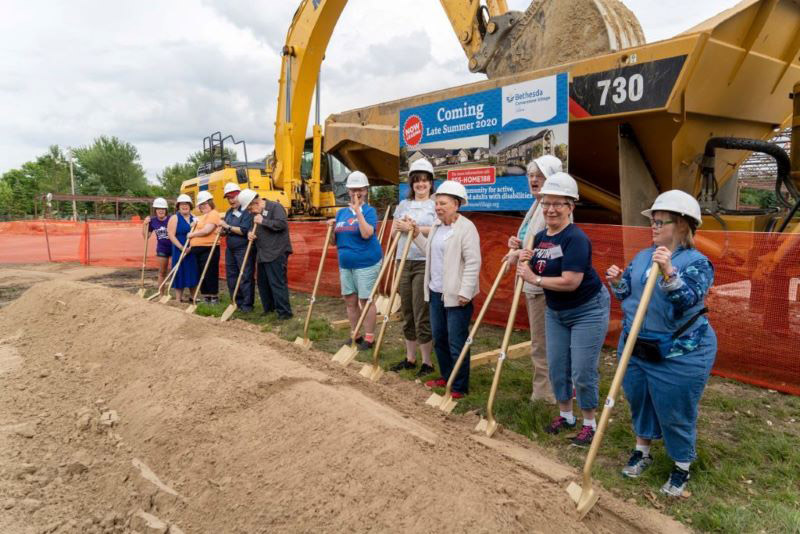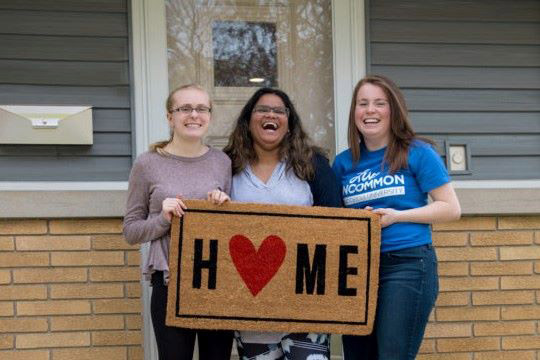Housing options for people with intellectual and developmental disabilities have changed dramatically over the past century. This change has been marked by a move away from institutional settings to more individualized and integrated housing situations that offer choice and community inclusion. There are many types of living arrangements for people with IDD, and the differing names and categories can seem a little confusing, especially if you are navigating the housing market for the first time. That’s why we put together this quick list of the most forward-thinking housing options for people with disabilities.
The Old Model: Institutions
Institutional housing developments for people with disabilities are being phased out of the market in favor of a different approach: community-based housing. For much of the 20th century, people with disabilities were often segregated from society in institutionalized settings, regardless of their level of support needs. It was a one-size-fits-all approach that did not take the individual’s own desires into account and has since been deemed an archaic model for housing. In the 1970’s, a movement against institutionalized housing gained steam and new innovative approaches to housing began to emerge. Today, the institutional model is largely a thing of the past and has largely been replaced by the group-home model where people with disabilities live together in small groups in their own homes. While the group home model has been a welcome replacement for institutions, more forward-thinking solutions to housing have emerged which offer greater levels of choice and independence for people with IDD.

For much of its history, AbleLight operated a housing campus for people with intellectual and developmental disabilities. As the institution model faded away in favor of more forward-thinking housing solutions, AbleLight ceased operation of the facility in favor of several community-based group homes in the area.
Forward-thinking Model #1: Supportive Housing
The supported housing model allows people with disabilities to live as independently as possible by subsidizing rentals and providing access to intermittent support services. In a supportive housing arrangement, a person with disabilities is able to live on their own and receive subsidized rental rates through the U.S. Department of Housing and Urban Development. Supportive housing helps independently-minded adults with disabilities live on their own while also receiving the support they need for every day tasks. It is up to the person to determine what ongoing supports they need, making it a truly person-centered approach.
Forward-thinking Model #2: Shared Living Arrangements
Shared-living arrangements are a relatively new concept when it comes to housing for people with IDD. In these living arrangements, a person with IDD actually lives with another family in their own home, making shared living one of the most integrated and community-based housing options out there. Not only does the arrangement provide needed supports for the individual, it often integrates a person into a family where they can feel that they truly belong. The host family is given extensive training by an accredited agency so they can meet the needs of the specific person they bring into their home. Shared Living arrangements provide far more than a place to live for people with IDD – they provide them with family.
Forward-thinking Model #3: Integrated Community Living
One of the newest concepts in the housing space are communities where people with or without disabilities live together in a truly integrated environment. The goal of this type of arrangement is to break barriers and tear down walls between people with disabilities and the rest of the community.
While this model is still in its infancy, AbleLight is spearheading the movement toward integrated community living for people with disabilities through its AbleLight Village project in Victoria, Minnesota. This community, one of the first of its kind in the United States, will provide an energetic, inclusive environment for active seniors age 55 years and older and independent adults with disabilities.

When you start to explore which living arrangement may be best for you or your loved one, make sure you consider some of these forward-thinking solutions to housing. Because you shouldn’t just settle for a place to live—you deserve a place to call home.

